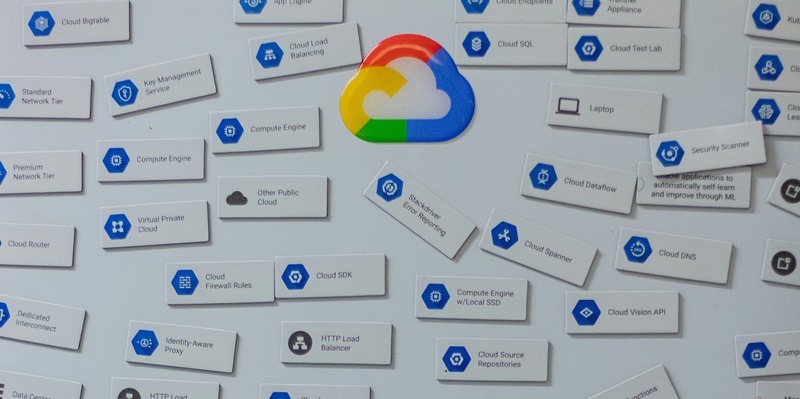In the vibrant city of Las Vegas, a major conference hosted by Google Cloud recently took the spotlight, drawing a massive crowd of 30,000 attendees. The event marked a pivotal turn for Google, as they showcased their dedication to integrating generative AI into their cloud services. It wasn’t just the impressive number of participants that made the event monumental; it was the strategic direction the company presented for AI’s role in cloud computing. Google’s latest endeavor presents an exciting, yet complex, future for how businesses might harness AI within the cloud. The conference served as a nexus for innovative technologies and vital conversations about how AI will shape our digital landscape. As anticipation for AI’s capabilities grows, the event balanced excitement with a mindful approach to the forthcoming era, signaling both revolutionary prospects and impending hurdles within the tech industry.
Google Cloud’s AI-Driven Vision
Google cast a spotlight on its latest foray into artificial intelligence, with the Gemini large language model taking center stage. This progression elucidates Google’s recognition of AI’s burgeoning role in reshaping sectors across the board. From aiding programmers in code generation to revolutionizing content analysis, Google’s AI tools are poised to redefine efficiency and creativity in the workplace. As businesses grapple with an ever-expanding digital landscape, the integrative capabilities of Google’s AI solutions suggest a seismic shift in how tasks are approached and completed, promising a future where AI not only supplements but amplifies human ingenuity in substantial ways.
During the event, the transformative attributes of AI were heralded as a force that could streamline processes and catalyze productivity across industries. Participants had a front-row seat to actionable insights on how AI, specifically Gemini, could redefine their roles, boosting their capabilities to levels previously unattainable. Emphasizing the flexibility and adaptability of AI, Google portrayed a world where tailored AI solutions are not mere accessories but essential components of the modern technological toolkit. This bold vision set forth by Google suggests a paradigm in which work is not only done more efficiently but also with greater precision and intelligence.
AI Enhancements and Demonstrations
Google recently launched a range of AI features aimed at improving user productivity by introducing role-specific AI agents. These enhancements signal Google’s leap into a future where AI functions as an integral assistant for various professional needs. The technology promises a new horizon for developers, creators, and business professionals by weaving AI into the fabric of their work.
However, at the event, some AI applications, like a simulated AI-handled e-commerce call, led to debates about their necessity. Some tasks might be just as efficient without AI. Google’s demonstrations, while sleek, sparked discussions on the actual need for AI in certain situations. The challenge for Google now is not just to display AI prowess but to embed it effectively in areas where it can truly revolutionize processes. The potential of AI is immense, but Google must illustrate its indispensability beyond just augmenting what’s already efficient.
The Hurdle of Organizational Adoption
Generative AI, as spotlighted by Google, is not immune to the cycle of hype and skepticism that has historically shadowed emerging technologies. Past trends such as mobile computing, the advent of cloud services, and the introduction of containerization all faced initial reluctance from large organizations. This pattern is recurrent: institutional inertia and cultural resistance to change often form a barrier against the adoption of breakthrough technologies.
The journey of integrating AI like Gemini into business operations mirrors the technical and cultural adjustments faced in prior tech evolutions. Organizations with legacy systems and an on-premises technology mindset may find the leap to innovative AI solutions more daunting than those already acclimated to the cloud. Battle-testing newly adopted AI technologies against the entrenched processes and technologies of larger companies is a challenge that demands strategic foresight and a phased approach, and Google’s emphasis during the conference served as a reminder of the multifaceted nature of this transition.
Data Quality and Management
The crux of effective AI implementation lies in the oft-repeated phrase: “garbage in, garbage out.” Generative AI systems, such as Gemini, crave data that is not just abundant but also meticulously organized and of high caliber. Recognizing this, Google has put forth tools designed to help data engineers finesse the flow and preparation of data—assuming a context where digital transformation is not an aspiration but a reality.
Even as Google equips businesses with the technical arsenals to strengthen their data foundations, many still stand at the precipice of digitization, challenged by the sheer scale and complexity of orchestrating data in a manner that fulfills AI’s voracious appetite for quality input. This gap further underscores the necessity for a commitment to a comprehensive digital overhaul before generative AI can be unleashed to its full, game-changing potential.
Challenges Beyond Deployment
AI’s progressive march isn’t just about technology deployment; it’s laced with legal, ethical, compliance, and security challenges that demand vigilance. Experts like Andy Thurai of Constellation Research caution that AI’s allure comes with complex strings attached. This sentiment resonated at a Google Cloud gathering, where the reality sunk in: embracing AI’s potential also means tackling its multidimensional complexities.
Those at the event in Las Vegas witnessed a future sculpted by generative AI, a testament to innovation’s boundless prospects. However, businesses were reminded of the prudent mindset needed for this venture. It’s a future ripe with opportunity, yet it necessitates a thoughtful approach to the advanced hurdles that AI innovations weave into our world. As we stand on the cusp of transformation, the event signaled an era where AI’s opportunities are inextricably linked to a deeper understanding and management of its sophisticated challenges.

